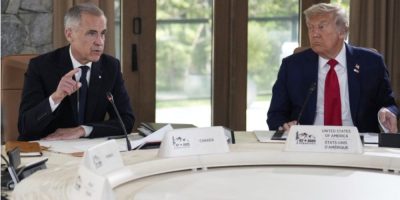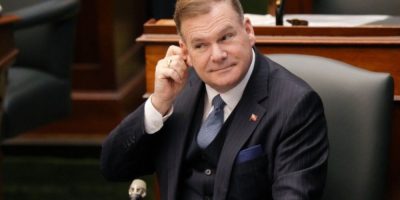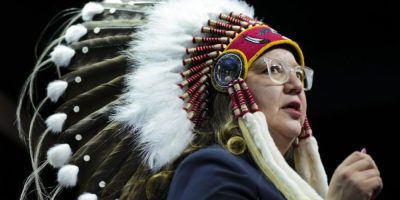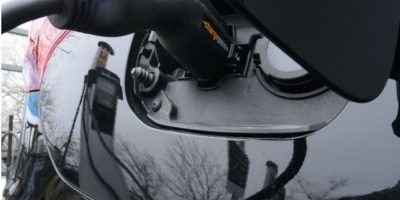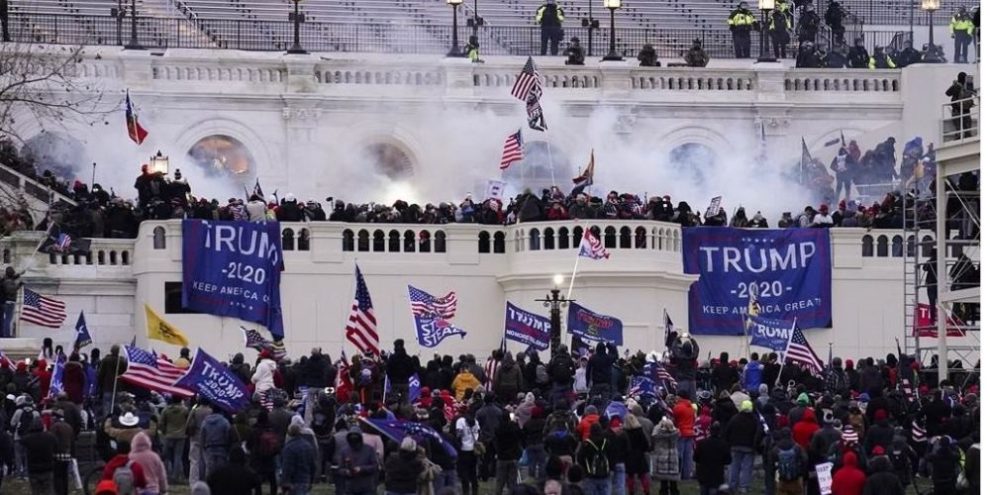
Former and aspiring future president Donald Trump returned to the scene of the alleged crime Thursday, pleading not guilty to charges linked to his relentless bid to overturn the 2020 election.
Trump’s motorcade arrived at the E. Barrett Prettyman U.S. Courthouse in Washington, D.C., about 45 minutes early, steering clear of the growing crowds out front and entering the building by way of an underground parking garage.
Once inside, he was formally arrested and charged with the four counts detailed in the stunning indictment — his third in four months — delivered Tuesday by special counsel Jack Smith.
That was followed by an appearance before U.S. Magistrate Judge Moxila Upadyaha, who read out the charges as well as the maximum sentences — between five and 20 years for each count.
Upadyaha reminded Trump that he was to avoid any contact with anyone slated to be a witness in the case, and that it’s a crime to try to influence members of a jury.
The case returns to court Aug. 28, when Upadyaha is expected to set a trial date.
Trump’s lawyers waived their client’s right to a speedy trial — not surprising, given it is in his interest to delay proceedings for as long as possible, preferably until after the 2024 election.
Outside, hundreds of people — most of them either law enforcement officers or media personnel — encircled the courthouse for much of the day Thursday in anticipation of Trump’s arrival.
The crowds swelled in size throughout the afternoon as the hour of reckoning grew closer, giving the event a carnival feel as crowds of onlookers jostled for position alongside camera operators craning for a better view.
Of what was never exactly clear: Trump did not show his face outside the building.
While en route, he continued to press his case in all−caps via his social media platform Truth Social, calling the arrest "a great honour" and describing the election as "corrupt, rigged and stolen."
Legal observers say the case will turn on whether prosecutors can prove Trump privately believed the myriad advisers and officials who were telling him that he’d lost the election.
Just around the corner loomed the U.S. Capitol, a much quieter place than it was Jan. 6, 2021, the day legions of Trump’s supporters stormed the complex to keep Joe Biden out of the White House.
Nearby, the pro−democracy group Public Citizen gathered to mark what executive vice−president Lisa Gilbert called a routine occasion: the justice system working as intended.
"Donald Trump has now been criminally charged for attempting to stop the peaceful transfer of power — and the charges come from the very government that he attempted to take over by force," Gilbert said.
"There can be no more serious alleged crime than a conspiracy to overturn the very foundation of our democracy: the right of all Americans to cast our vote and have it be counted."
Work crews spent the night encircling the courthouse with bike rack−style barricades — a far cry from the two−metre fences that were often a fixture in the city during Trump’s presidency.
Much as they did for his previous two arraignments, cable news networks breathlessly covered Trump’s journey from his golf club in Bedminster, N.J., to an airport in Newark, where his private plane was waiting to spirit him to D.C.
A small battalion of snow plow trucks sat parked along one side street — a common sight in the U.S. at events where extra traffic blockades are needed.
Just a handful of protesters — some supporting Trump, others decidedly not — showed up, only to find themselves vastly outnumbered by members of the media.
The occasional chant of "Lock him up" went up from passersby. One supporter brandished a sign that said, simply, "Trump won." Around the corner, a man in a jailbird suit languished on a park bench.
And in a park between the courthouse and the neighbouring Canadian Embassy, a protester was putting the finishing touches on a large plywood billboard, painted in the style of Trump’s familiar campaign colours, that bore a single word: "Loser."
"This is not a celebration; this is, in fact, a reckoning," said Svante Myrick, president of the pro−democracy group People for the American Way.
"The only thing more dangerous than arraigning a former president for his crimes is allowing a president to attempt to subvert our democracy and then get away with it."
Trump faces four new charges: conspiracy to defraud the United States, conspiracy to obstruct an official proceeding, obstruction of an official proceeding and conspiracy against rights.
Tuesday’s 45−page indictment lays out in precise detail a multi−pronged effort that enlisted lawyers, Justice Department officials and eventually ordinary supporters to delay certifying the vote.
Trump is already facing 74 other charges, including 34 felony counts in New York tied to hush−money payments, and 40 more in Florida over classified documents he allegedly stored at his Mar−a−Lago stronghold.
So far, his legal woes appear to have done nothing but help his bid to secure the Republican nomination for president in 2024 — recent polls suggest he’s running away with the race.
The latest case, however, is the one that is likely to resonate the most on the campaign trail, given how it lays out a direct assault on U.S. democracy, said Matthew Lebo, a politics professor at Western University in London, Ont.
But while it’s theoretically possible Trump could withdraw from the race if convicted, previous experience suggests that’s not at all likely, Lebo said.
"So if he goes forward and contests primaries and collects delegates, then he’s going to be the nominee," he said. "If he’s convicted before the election, I don’t know — I can’t imagine what that means."
So long as he continues to enjoy the backing of a majority of Republicans in Congress, Lebo said, it’s hard to imagine him going to prison.
"I think he runs, and I think — even if he’s convicted, or is right in the middle of a trial — I think he’s still going to get 40 per cent of the vote," he said.
"And the Republican Party will not move away from him until he decides he’s done."
For weeks, Trump has been cultivating moral support among his loyal base by framing the indictment as a politically motivated witch hunt.
So far, it’s proven an effective strategy.
Among Republicans, he currently enjoys a staggering 37−point lead over his closest challenger, the faltering Florida Gov. Ron DeSantis, a new poll released Monday by Siena College and the New York Times suggests.
DeSantis managed just 17 per cent support with likely Republican primary voters to Trump’s 54 per cent. Former South Carolina governor Nikki Haley, Sen. Tim Scott and ex−vice−president Mike Pence all sat a distant third with three per cent each.
Perhaps more surprising, in surveying voters of all political stripes about the 2024 presidential election, that same poll found a dead heat between Trump and incumbent Biden, tied at 43 per cent.
This report by The Canadian Press was first published Aug. 3, 2023.
James McCarten, The Canadian Press

